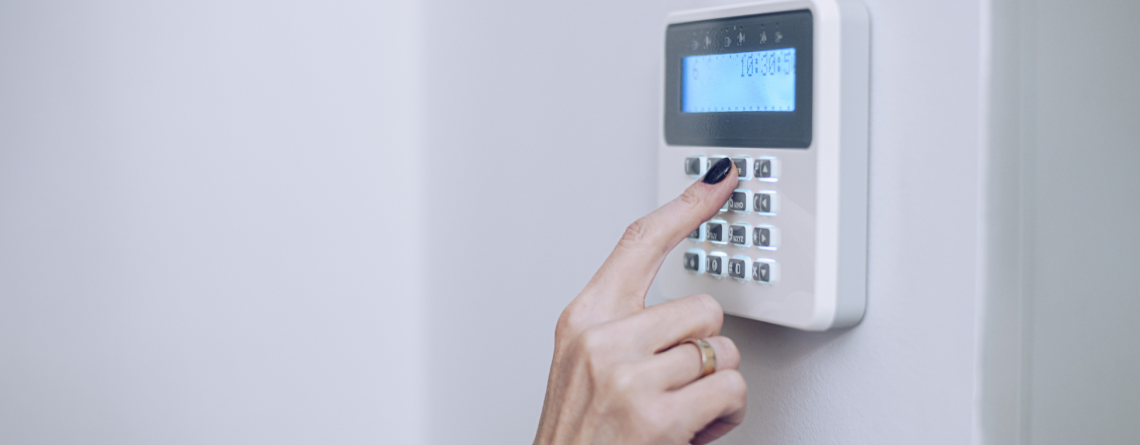Home Security Goes High Tech, and So Do the Bad Guys
Back in the day, when someone talked about home security, they were referring to an alarm system, and maybe trimming bushes and other landscaping to make sure bad guys had nowhere to hide. Now? Things are completely different, and a little unnerving for those of us who are not computer geeks. Now we have to think about cyber security.
We’re in an era where we have “smart” everything: smart phones that connect to smart alarms, smart appliances, smart video feeds and more. This can open the door (sometimes literally) to people who have no business coming into our homes.
This is the world we live in, and while cyber risks are unsettling, the conveniences afforded by modern technology are wonderful. We can turn on lights remotely from our cell phones so it looks like we’re home. After a weekend getaway, we can access our heating system remotely, so we can come home to a toasty house. We can use “nanny cams” (electronic video feeds) to make sure our young children are safe and having fun with their babysitter. So, how can we enjoy these benefits, and still protect ourselves? Here are a few tips.
When you move into a new home, change the locks. In today’s world, passwords are like locks, so you should change those, too. If you have wi-fi in your home, then you have an Internet router: it has a password. If you have smart devices, they are likely to have passwords—passwords the previous owner has and that may have been shared with vendors, maintenance personnel, neighbors, Realtors, and others. I’m sure most of these folks are completely reliable, but some may not be.
Here’s a list of some of the most common smart devices to consider:
Smoke/carbon monoxide detectors
Sprinkler/irrigation systems
Appliances (TVs, refrigerators, washers and dryers)
Security alarms
Garage door openers
External keypads that control locks for gates and doors
Thermostats
Lighting
Internet router/modem
If you have smart systems you don’t use, disconnect them. Just because you don’t use them doesn’t mean someone else won’t. Cyber attackers look for any access point they can find. If you leave a door open, electronically speaking, they can walk through it and gain access to your private, personal data.
For example, most of us allow our personal computers to “remember” passwords, so we don’t have to. This means, if thieves gain access to your computer via one of your smart devices, they may be able to access your online banking and credit card accounts. They can rob you of your financial resources, as well as your electronic identity, ruining your credit and wreaking havoc in your life.
And while that’s really scary, the threat can be much more personal: with access codes to one part of your system, a thief or attacker may be able to get physically into your home. Newer garage door systems with remote controls may not be as safe as you think. If you do not lock the door to your home from inside your garage, because you think your garage door is doing the trick, you may be surprised.
Whether you are a homeowner or a renter, make sure only the people you choose have access to your home’s smart devices. Be sure to tell your children how important privacy is, so they do not share passwords or access codes with friends.
In addition to safeguarding electronic access with passwords and software updates to patch any security vulnerabilities, consider using old-school safety techniques, like encouraging your nosy neighbor to watch out for your house while you’re away. Remember Mrs. Kravitz from the TV show Bewitched? She could become the most effective tool in your safety toolbox.
If you have questions about real estate or property management, please contact me at rselzer@selzerrealty.com or visit www.realtyworldselzer.com. If I use your suggestion in a column, I’ll send you’re a $5.00 gift card to Schat’s Bakery. If you’d like to read previous articles, visit my blog at www.richardselzer.com. Dick Selzer is a real estate broker who has been in the business for more than 40 years.






